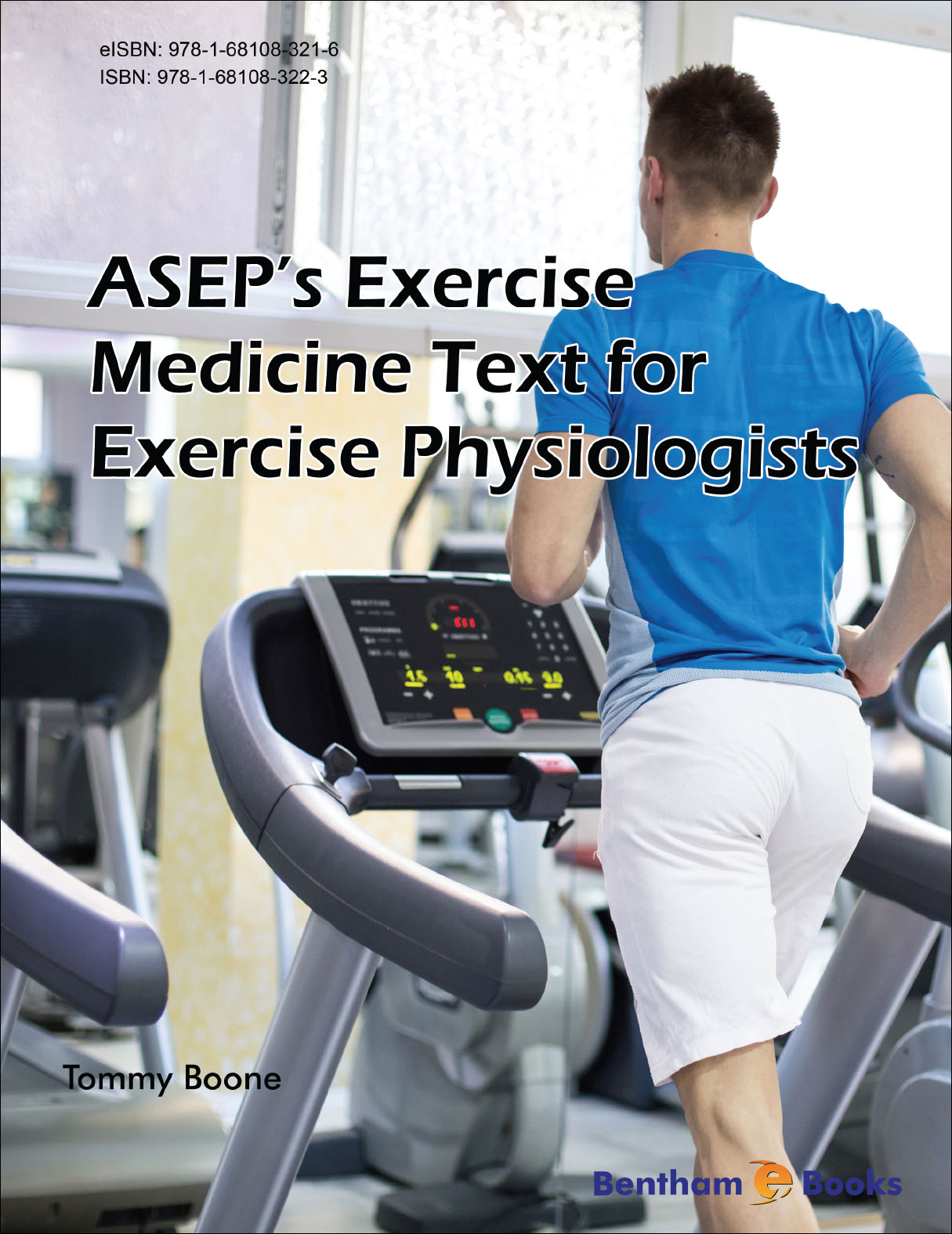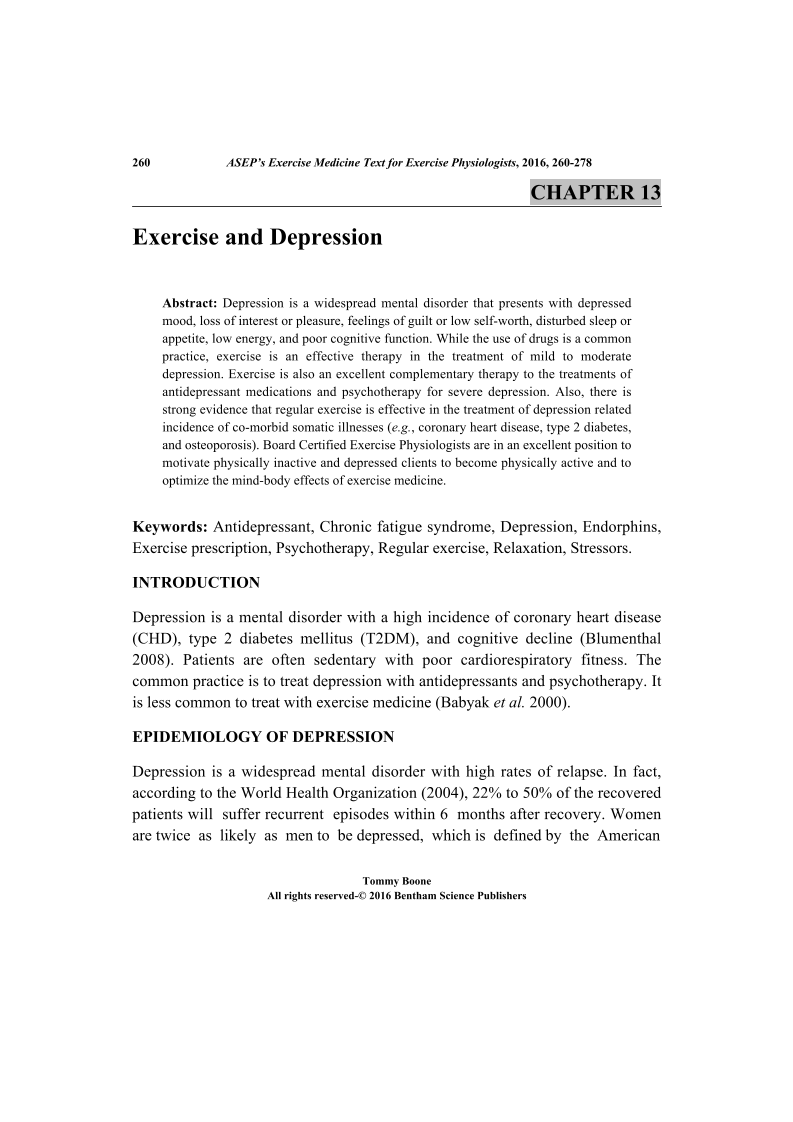Exercise and Depression

- By Tommy Boone1
-
View Affiliations Hide Affiliations1 American Society of Exercise Physiologists, United States
- Source: ASEP's Exercise Medicine Text for Exercise Physiologists , pp 260-278
- Publication Date: August 2016
- Language: English
Exercise and Depression, Page 1 of 1
< Previous page | Next page > /docserver/preview/fulltext/9781681083216/chapter-13-1.gif
Depression is a widespread mental disorder that presents with depressed mood, loss of interest or pleasure, feelings of guilt or low self-worth, disturbed sleep or appetite, low energy, and poor cognitive function. While the use of drugs is a common practice, exercise is an effective therapy in the treatment of mild to moderate depression. Exercise is also an excellent complementary therapy to the treatments of antidepressant medications and psychotherapy for severe depression. Also, there is strong evidence that regular exercise is effective in the treatment of depression related incidence of co-morbid somatic illnesses (e.g., coronary heart disease, type 2 diabetes, and osteoporosis). Board Certified Exercise Physiologists are in an excellent position to motivate physically inactive and depressed clients to become physically active and to optimize the mind-body effects of exercise medicine.
-
From This Site
/content/books/9781681083216.chapter-13dcterms_subject,pub_keyword-contentType:Journal -contentType:Figure -contentType:Table -contentType:SupplementaryData105

